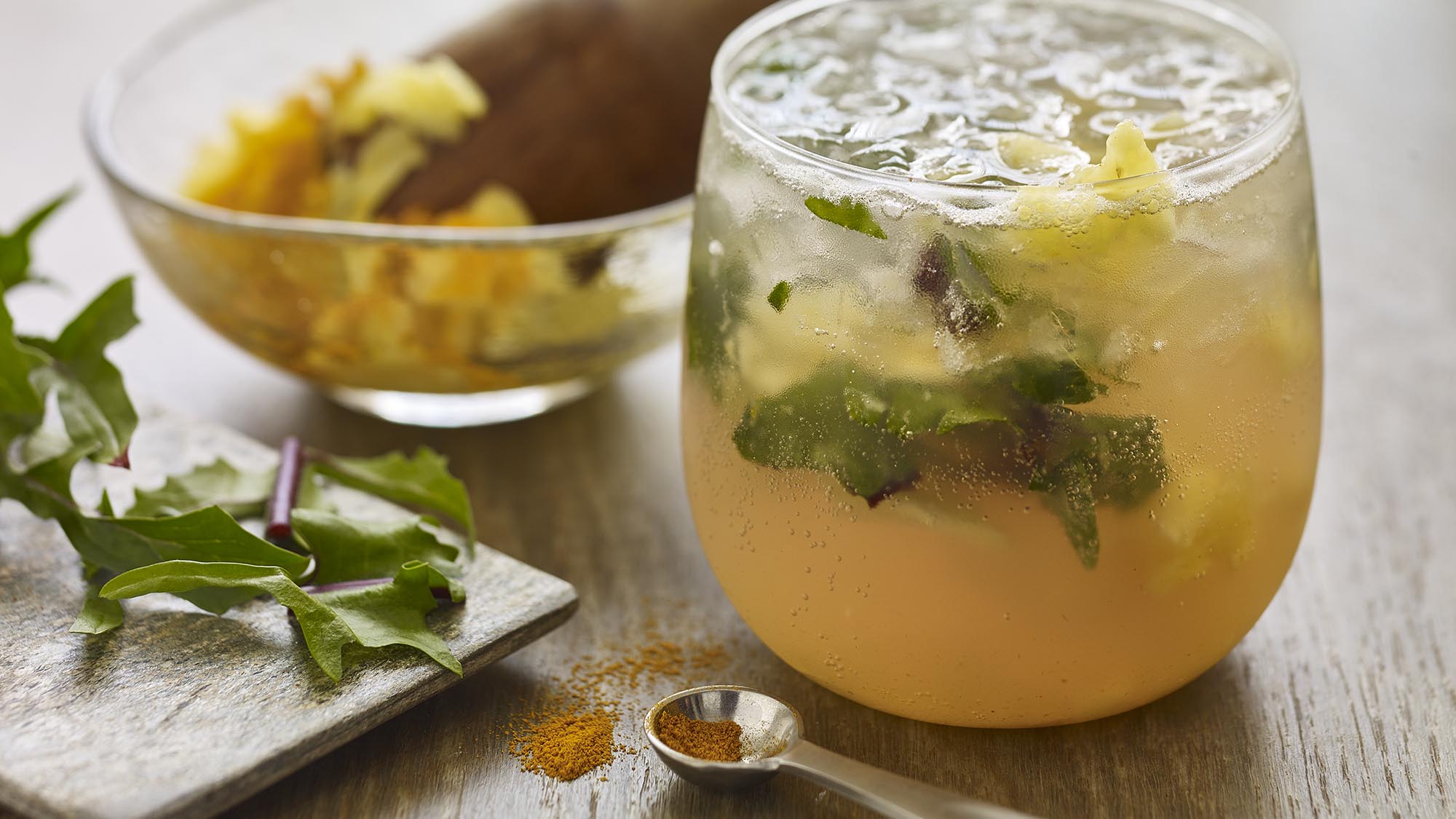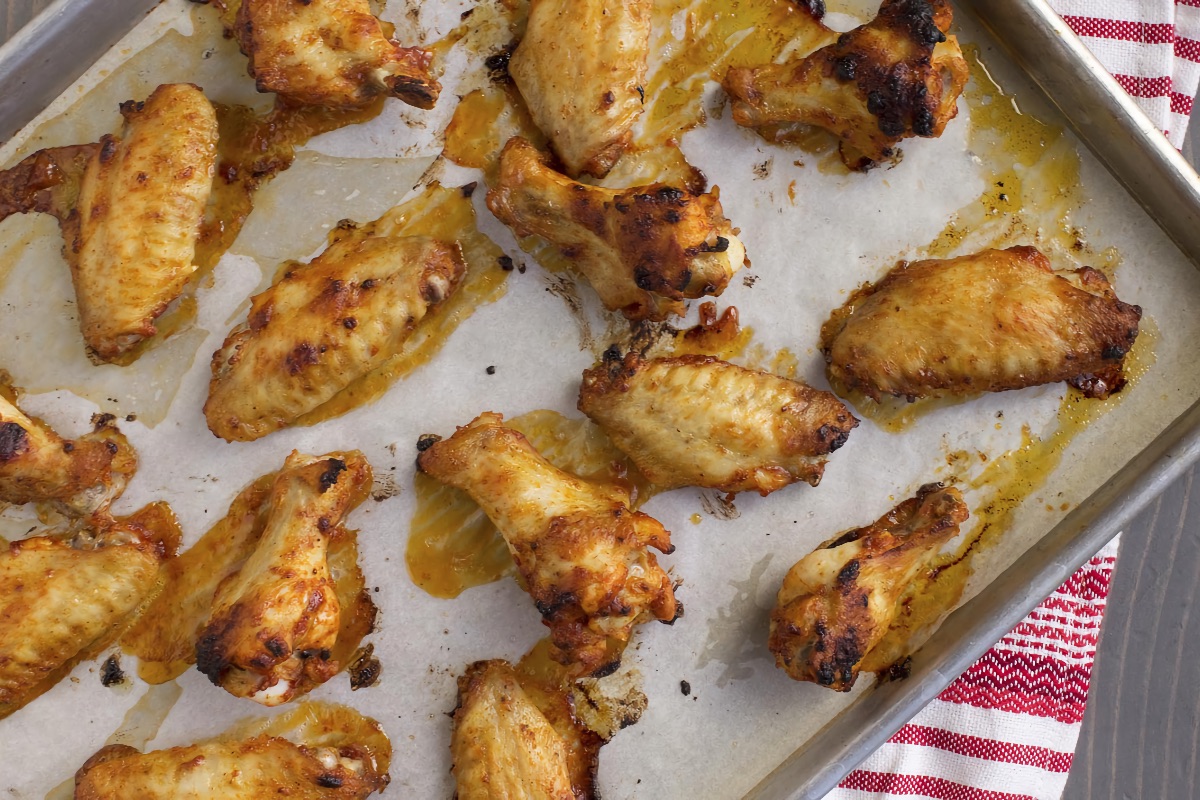I am a new poached-fruit convert. The case for poaching fruit at home is very convincing: You can do it with nearly any fruit, even dried fruit. You can use nearly any liquid as the base for your poaching. You can poach as much or as little fruit as you want any any given time—and it still only takes about an hour start to finish. And the resulting fruit sauces itself. Plus: You can eat it for breakfast or dessert!
You don't even need a recipe to do it:
1. Select and prep your fruit.
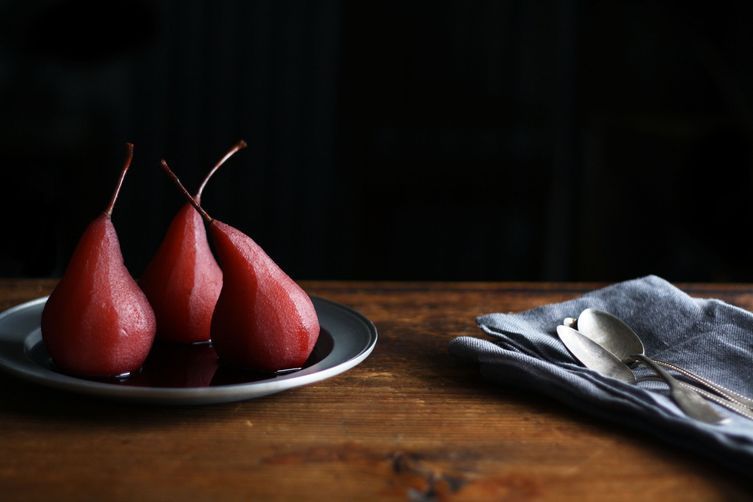
Photo by Eric Moran
You can poach any fruit you like—whatever's in season, or whatever out-of-season thing you miss and can find dried. Pears! Apples! Oranges and grapefruit! Dried apricots, figs, or prunes! Berries, pineapple, and mango are all welcome choices, too. Let the season and/or your grocery stores bulk bins guide you. Whatever you choose should be ripe but firm.
Plan on one piece of fresh fruit and three or four pieces of dried fruit per person.
Dried fruit (NB: dehydrated, not freeze-dried, fruit) needs no prep. Fresh fruit, on the other hand, should be peeled and possibly cut up. You can feel out how the cuts should be made as you go along, but think about how you want to serve the fruit: Pear halves? Whole cored apples? Thick orange slices? Halved and pitted plums? If your fruit has a significant core or pit, I'd recommend slicing the fruit in half and scooping the offending middle parts out before poaching.
2. Decide on a poaching liquid.
You can use just about any sweetish liquid (i.e. not broth or milk) to poach your fruit. Wine, red or white, is a classic choice. You can use tea (Earl Grey! Chai! Chamomile!) or coffee; note that tea or coffee should be steeped or brewed before you start poaching. This recipe uses ginger beer! Fruit juice, cider, or coconut milk would also be lovely. Unless the liquid you're using is already sweetened (like juice), you should plan on adding about half a cup of sugar, or honey, or maple syrup per cup of liquid you use. If you're not a big sweets fan—or are planning on eating this for breakfast—you can err on the side of too little sweetener and sweeten the fruit to taste when serving.
You'll need enough liquid to cover your fruit by about half an inch. For a small saucepan (and 2 to 3 pieces of fresh fruit), plan on about 3 cups of liquid. For every additional piece of fresh fruit, add another cup of water.
For dried fruit, simply add the amount of dried fruit you want to poach to the pan and add enough liquid to cover by about half an inch.
3. Toss in any second-layer flavors.
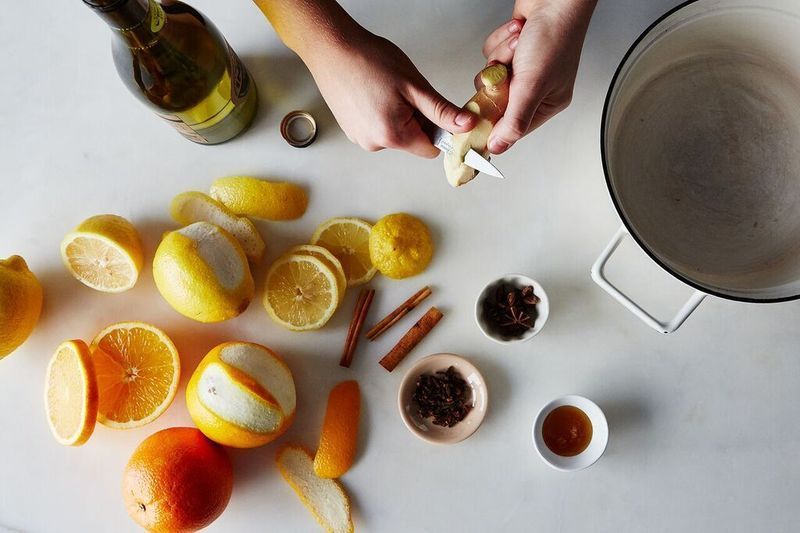
Photo by Bobbi Lin
These are your vanilla beans, your cinnamon sticks, your star anise, your strips of lemon peel, your slices of fresh ginger, your fresh basil leaves. Any whole spices or herbs or other aromatics can be added to the poaching liquid.
Some possible combinations:
- Pears + coffee + brown sugar + cardamom pods
- Dried apricots + chamomile tea + honey + lemon peel
- Peaches + white wine + white sugar + thyme
- Dried figs + red wine + brown sugar + cinnamon
4. Poach away!
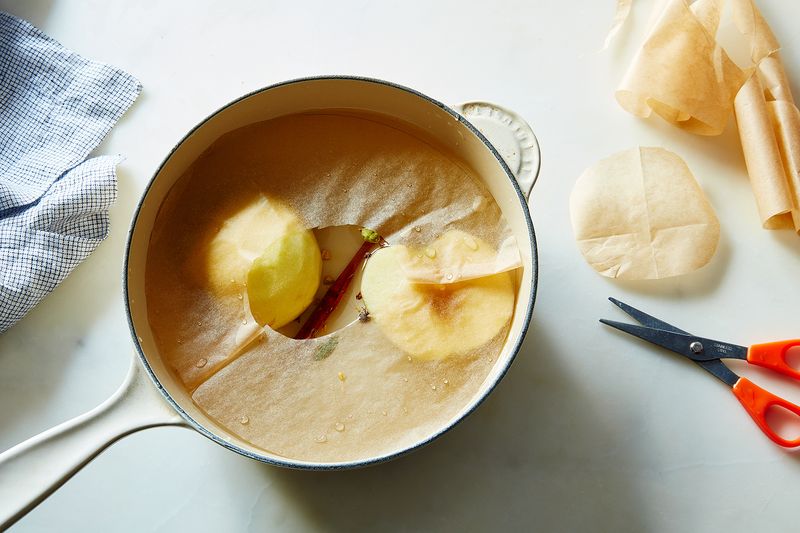
Choose a pot that is large enough to fit all fresh fruit on the bottom in one even layer (dried fruit can overlap a little)—but don't add the fruit yet. First, add the liquid and sugar to the pot and stir together over low heat. Add aromatics and fruit, then lay a circle of parchment over the surface of the liquid. (More on how to do that here.) Or do as cheese1227 does in this recipe and simply rest a pot lid smaller than the pot you're using on the surface of the liquid. Leave the pot otherwise uncovered.
Bring the liquid to a slow simmer, and keep it there until the fruit is tender, about 25 minutes.
5. Reduce the syrup.
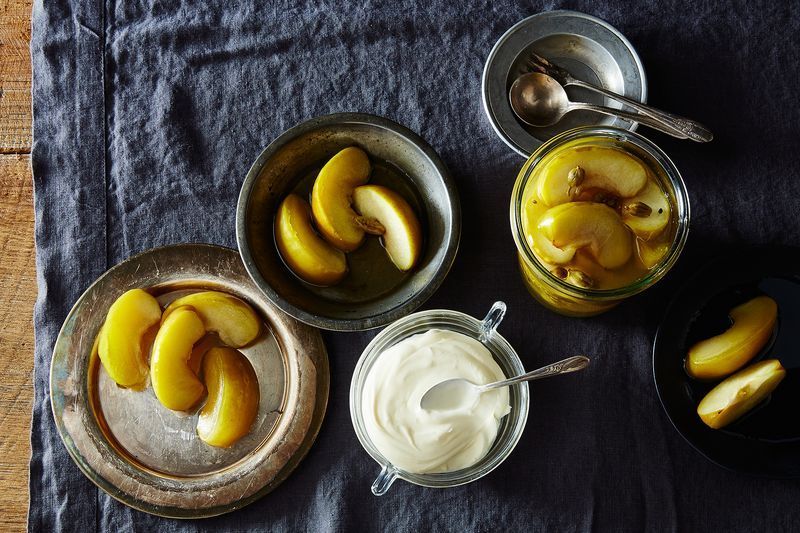
Photo by James Ransom
Fish out the fruit and the aromatics. Set the fruit aside, and discard the aromatics. Let the remaining liquid simmer gently until it has reduce significantly—it should be fairly syrupy.
When you're ready to serve the fruit, pour this syrup over the pieces. Dollops of ricotta, mascarpone, thick yogurt, or mild goat cheese are excellent additions, too. Or go the breakfast route, and serve over oatmeal or yogurt. Or slice up your fruit and serve it on a salad, or spoon it over meat. (Just think: you're only a batch of poached prunes away from a simplified chicken Marbella.) You can store any leftover fruit and syrup together in a jar in the refrigerator for about a week.
This article was written by Caroline Lange from Food52 and was legally licensed through the NewsCred publisher network. Please direct all licensing questions to legal@newscred.com.



